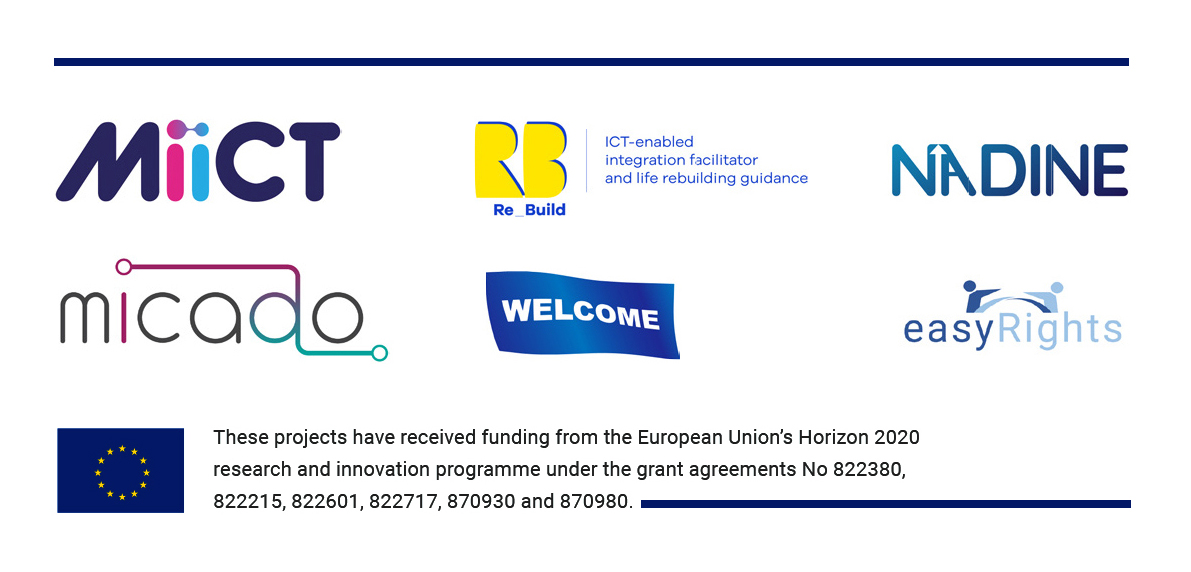All partners of the REBUILD project, as well as the partners of the other five (5) sister projects (EASYRIGHTS, MICADO, MIICT, NADINE and WELCOME) funded through the call H2020 DT-MIGRATION-06-2018-2019, have been invited by the European Commission and REA – Research Executive Agency, to discuss together under a set of topics, addressing the challenge of migrant integration.
A series of online Joint Workshops (due to the restrictions of COVID-19 currently facing) gave the projects the opportunities to interact with each other and plan future synergies even more concretely. Five sessions were organised via Cisco WebEX.
The aim of the joint workshops were, for the projects, to get to know each other progress and plan synergies, share practices and methodologies under the primary objective to avoid duplication of work and favour collaboration and exchange.
The reports of the five (5) workshops are now available. The reports contain a summary of the discussions, the available presentations, additional information and links shared during the workshops.
The reports are available in the following links:
Joint Workshop #1, 29/04/2020: Data management and ethics
Joint Workshop #2, 6/05/2020: ICT tools: design and software development
Joint Workshop #3, 13/05/2020: Target users, Users needs analysis, users’ involvement
Joint Workshop #4, 20/05/2020: Workshops and Pilots planning, implementation evaluation
Joint Workshop #5, 27/05/2020: Public Authorities: local, national regional, European level; involvement and scalability of project results

FIRST YEAR JOINT MIGRATION WORKSHOPS, BRUSSELS, 2019
In the first year of implementation, another joint event also organised by REA, on the 31st of January 2019.
The full report of this event, with agenda and presentations is available here
An overview of the six initiatives is also provided on a dedicated EC migration projects page.